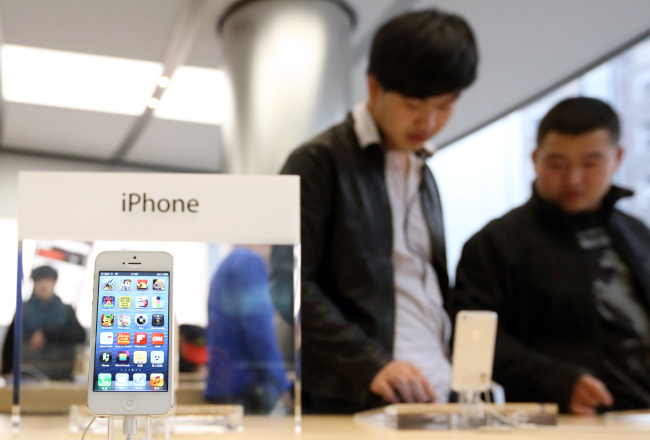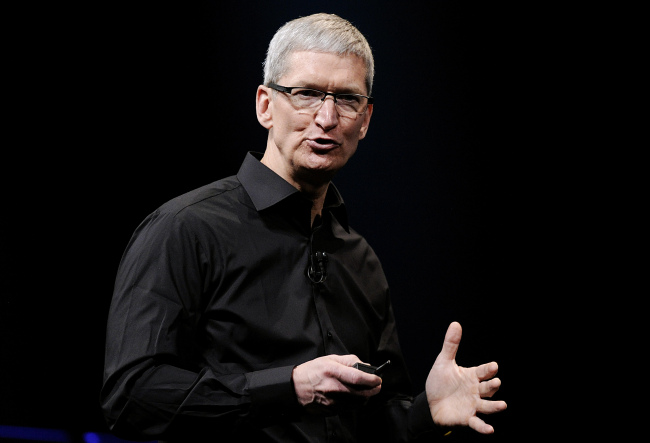To a certain extent, it was gratifying for Koreans to watch Tim Cook, the head of Apple Inc., one of the world’s most valuable and quintessentially American companies, beg China’s pardon last week.
It was a rare spectacle, and also something Koreans had sought years ago when they pounded Apple for its warranty policies. The terms had not gone down well since consumers have been used to getting their way with such services.
Apple eventually relented to allow partial repairs and reduce the repair costs. It also, in accordance with revised Korean laws, offered a brand-new phone, rather than a refurbished unit, to consumers who experienced glitches within 10 days of their purchase.
 |
Customers try an Apple Inc. iPhone 5 at the store in the Wangfujing area of Beijing on March 12. (Bloomberg) |
All this was the result of a fierce battle by the Korean government and Korean consumers against the Cupertino-based company.
In China, the public is calling for a similar improvement in warranty services, although the details may differ.
One thing Korea can learn from this predicament is that regardless of what Apple may say about all of its consistent global policies, the opposite may be the case.
Apple’s revenues in China last year reached $20 billion, and in the first quarter of this year, China sales increased by 67 percent, accounting for 13 percent of the company’s total, according to industry figures.
In Korea, Apple sells perhaps 1 million units a year, which pales in comparison to what the American iPhone-maker is ringing up in China.
As a Korean, it’s difficult to see why Cook, after spending several days denying any discrimination in China and criticizing the Chinese media and government, made the abrupt about-face.
“The numbers add up,” said one source close to the situation.
Another aspect is the politicization.
Apple, aside from being a genius’ brainchild, has now come to represent anything American.
 |
Apple CEO Tim Cook. (Bloomberg) |
Anyone or any government wanting Washington’s attention will go at Apple, which was the case between Samsung and Apple’s legal battle over patent infringement ― it’s hard for anyone to believe that rivalry and intentions to protect national interests did not play a role in this ongoing strife ― and also now, in China.
As soon as news of China’s latest anti-Apple campaign in March was out, critics immediately thought of the restrictions being slapped by some members of congress on Huawei and ZTE from doing business in the U.S.
Even in China, consumers via social networks are voicing concern over such schemes, with some saying they found Apple phones “perfectly fine” and are wondering about the ulterior motives.
Many in the industry opine that it’s high time governments became straight shooters to stop twisting corporate arms to get their political message across, and in the process manipulating consumers who at times require sounder guidance.
By Kim Ji-hyun (
jemmie@heraldcorp.com)









